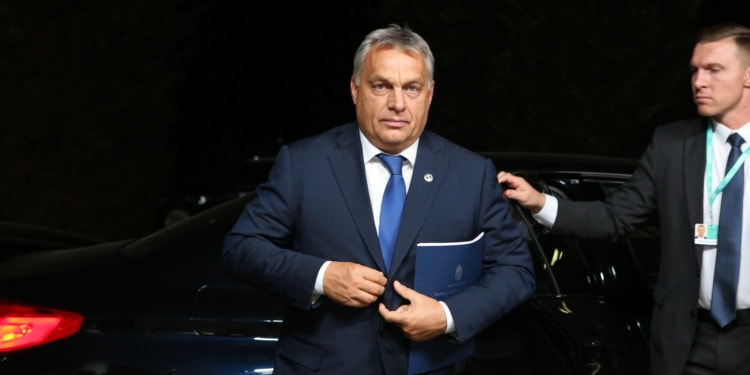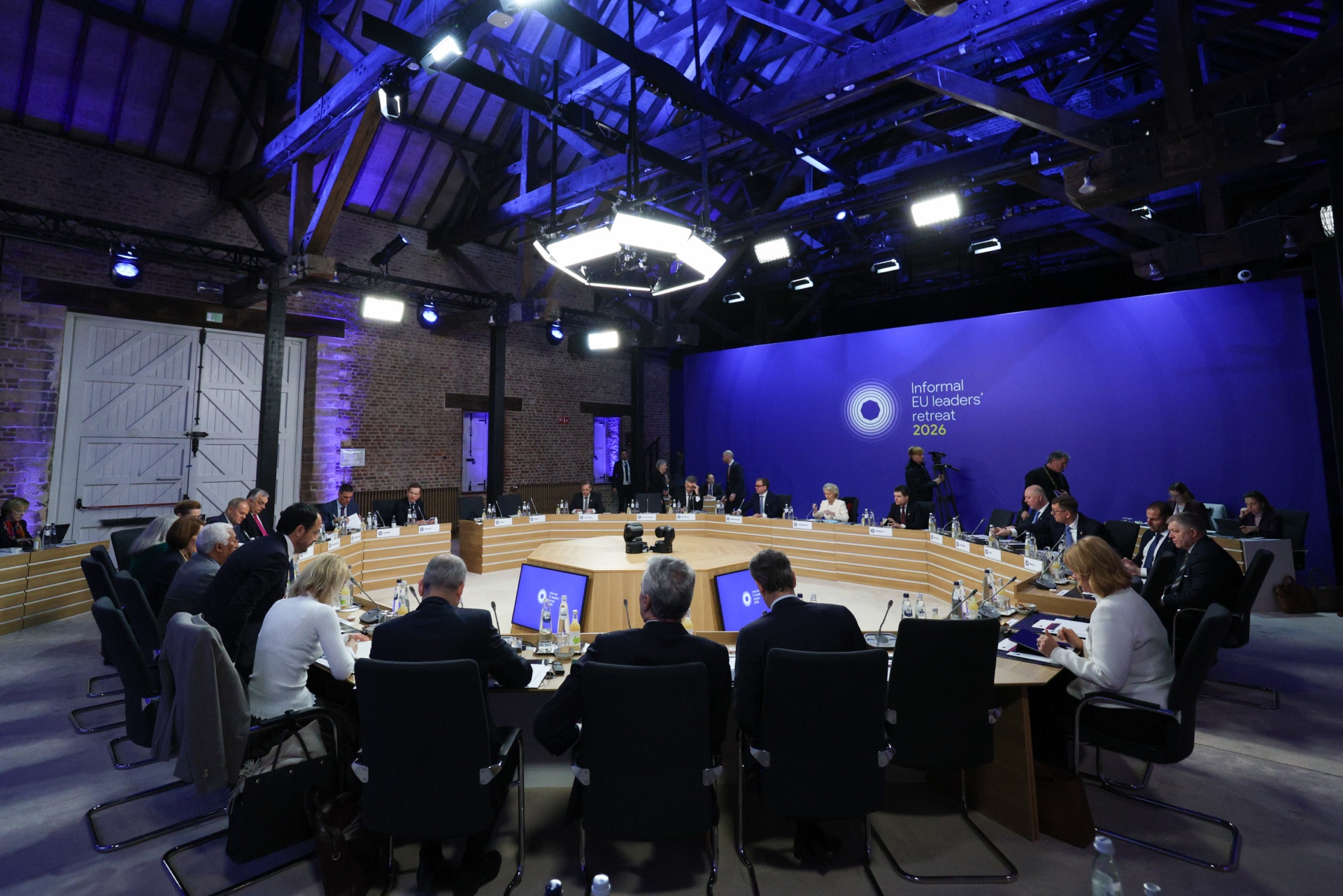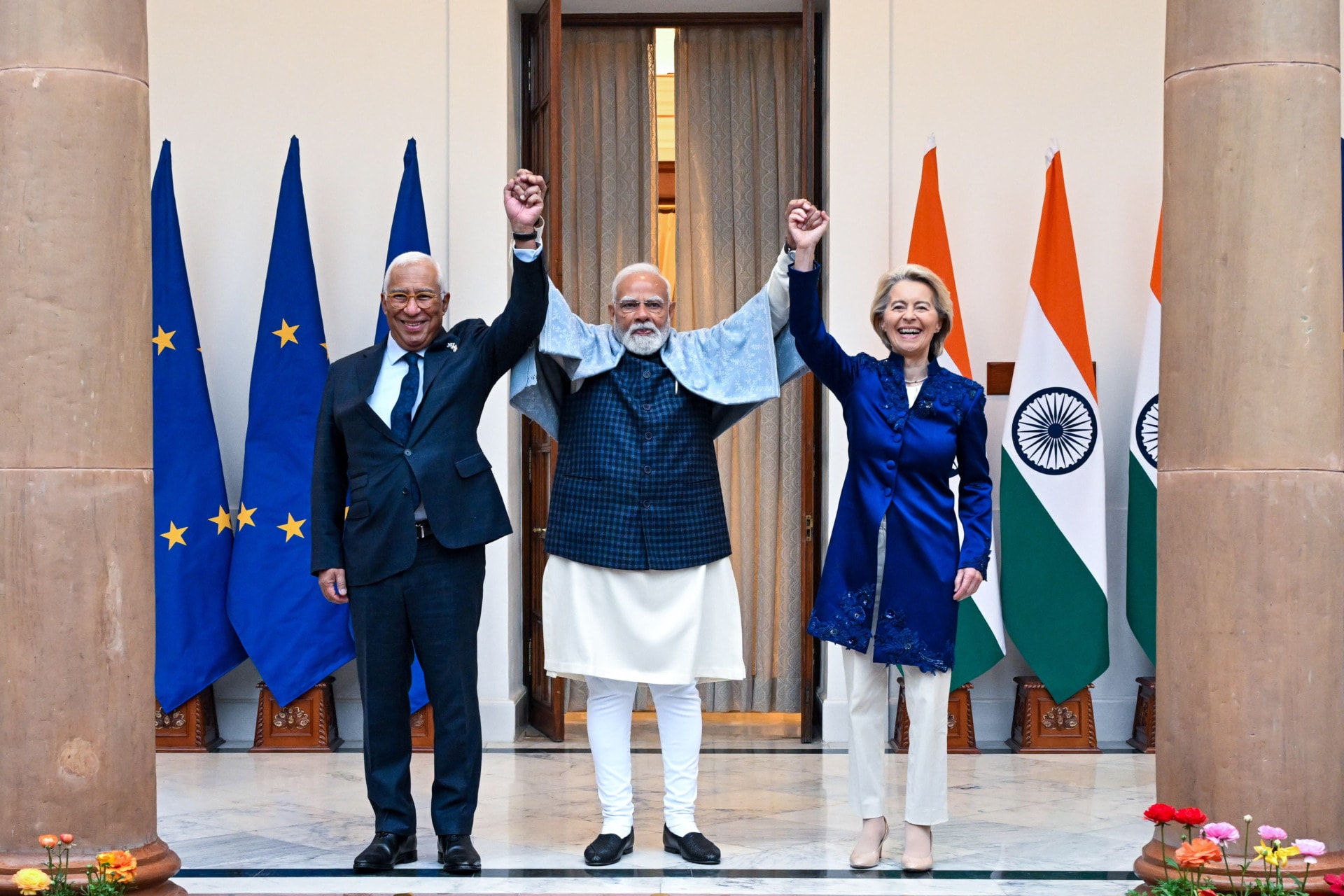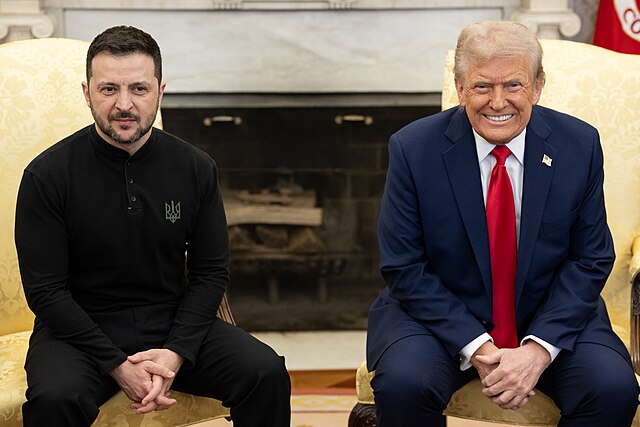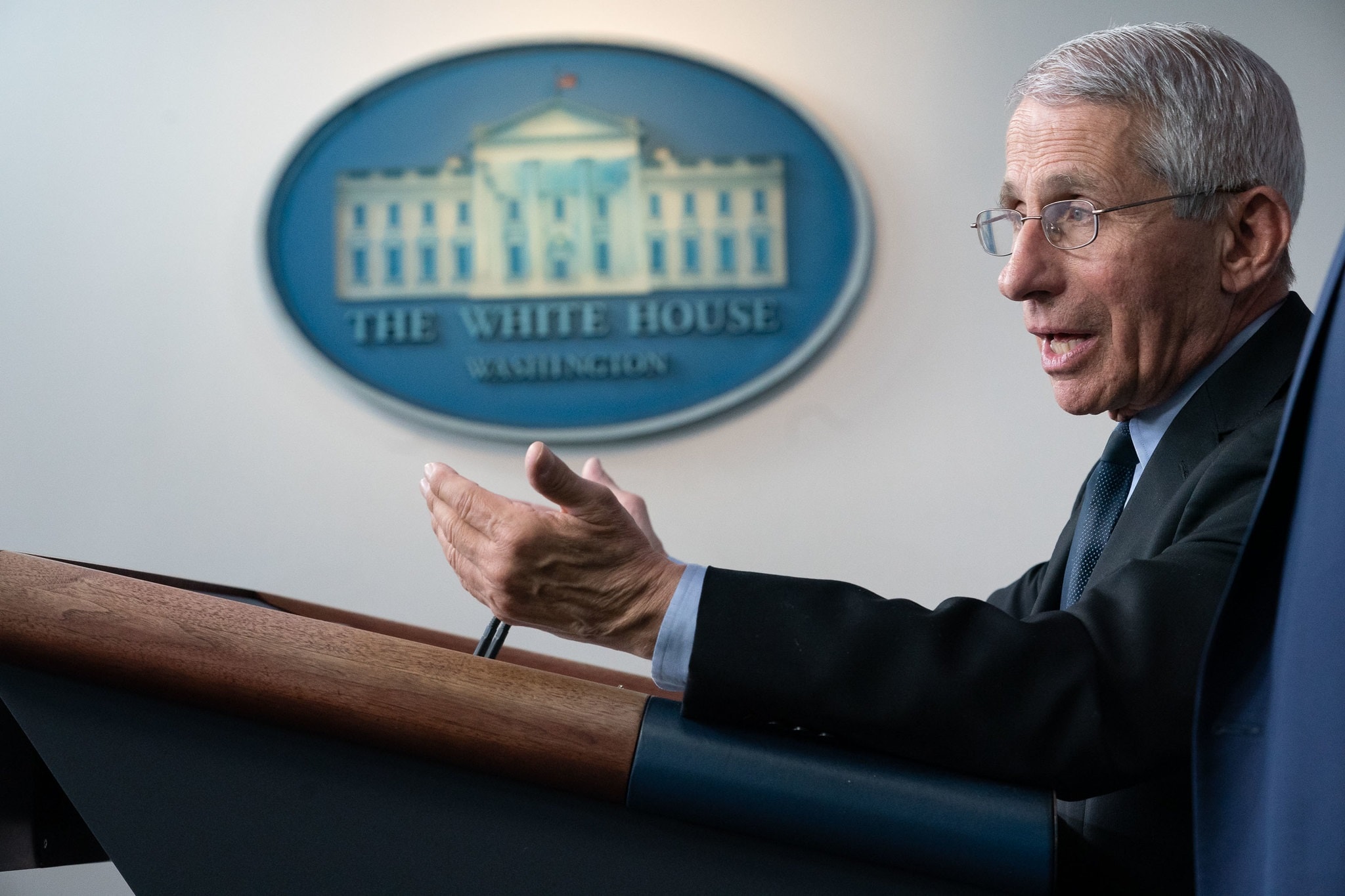A deadlock has ensued within the EU following Hungary’s veto of the financial aid package for Ukraine. Four distinct votes have now become interlinked as the Commission, headed by Ursula von der Leyen, has enacted an unprecedented freezing of EU funds earmarked for Hungary in order to safeguard the bloc’s financial interests.
Now a group of 12 EU member countries led by Germany and France is asking the EU Commission to review its assessment, giving Hungary an unexpected respite and setting an uncertain tone for the EU Council meeting on December 19 when EU measures against Hungary could be signed.
So what’s behind the stalemate and why are some countries having doubts that the EU Commission has gone too far in “punishing” Hungary?
How we got here: Under Orban’s autocratic rule, Hungary’s long slide away from democracy
It is clear that the blockage of the Ukrainian aid package, consisting of €18bn to be disbursed throughout 2023, is being used by Hungary as a bargaining chip to pressure other member states into agreeing to hand billions of the collective EU budget to Budapest.
Entangled within this contention is a tax deal that has been under discussion since mid-2021. This OECD agreement which Hungary has also blocked, arguing it will hurt European competitiveness and endanger jobs, would enforce taxation of large international corporations at a minimum rate of 15%.
In response to these uses of veto, the convened ministers decided to delay any decision regarding €7.5bn of EU funds intended for Hungary, as well as the approval of Hungary’s €5.8bn Covid-19 recovery plan.
Combined, these funds would equate to almost 9% of Hungary’s estimated GDP for 2022.
The Hungarian spokesman Zoltan Kovacs has responded to this withholding of funds, saying “Hungary considers it a dangerous precedent that the payment of EU funds to Hungary is linked to other, completely unrelated issues.”
THIS is the sound of the Hungarian veto against financial aid for Ukraine:
"Hungary is not in favor of the amendment of the financial regulation."
Orban is going into full escalation. pic.twitter.com/wQX5WWIPko
— Daniel Freund (@daniel_freund) December 6, 2022
This dispute is just the latest in the long-standing discord between Hungary and the EU.
Throughout the course of Viktor Orbán’s 12 years as Prime Minister, democratic backsliding – defined as the state-led debilitation or elimination of the political institutions sustaining a democracy – has become increasingly notable.
LGBT rights, the nation’s treatment of migrants, and the tightening controls over NGOs, the judiciary system, and the media are just some of the areas the EU Commission and Council have expressed concerns regarding.
There have also been numerous allegations of corruption made, one of the most prominent being that Orbán has been channeling EU funds to his inner circle in order to entrench himself as leader.
This accusation is supported by the statistic that, according to the EU anti-fraud agency, out of the entire bloc Hungary had by far the highest share of irregularities in spending EU funds between 2015 and 2019.
The rule of law lies at the core of our European unity and solidarity. @EU_Commission has just concluded that Hungary‘s remedial measures are insufficient to protect 🇪🇺 funds. We support Commission‘s proposal to withhold funds for Hungary as long as they remain at risk.
— Anna Lührmann (@AnnaLuehrmann) December 9, 2022
A series of reforms aiming to halt the democratic backsliding and assuage concerns regarding corruption and misuse of funding were agreed with Hungary in summer.
However, Hungary failed to complete these reforms, and the anti-graft agency recently set up by Orbán has not sufficed to convince the Commission that significant, positive change is taking place to restore democracy within the country.
“The Hungarian Government had a lot of time to implement the requested measures but it did not do enough,” stated Finnish MEP Petri Sarvamaa. “If EU citizens’ money cannot be protected against irregularities, then it cannot be disbursed,” he added.
A group of international democracy and rights groups, including Human Rights Watch, have echoed these sentiments in a letter arguing that the amount of funding being withheld from Budapest should not be lowered even if progress is noted.
“The evidence of Hungary’s rule-of-law decline has been exposed for years,” they assert, and so superficial alterations should not be taken as reason to deliver the withheld funds.
🚨Open letter to EU governments regarding EU funds to Hungary https://t.co/T5ZfW5KzVS via @TI_EU
— Transparency International EU (@TI_EU) December 6, 2022
Von der Leyen’s Commission have detailed new recovery plans including 27 reforms, 17 of which are prior commitments the nation failed to act on. Within these 27 are judicial changes intended to strengthen the independence of Hungary’s Supreme Court, as well as new rules on auditing and reporting EU funds.
Hungary would need to meet these measures in full, a target that it is predicted could be achieved by March 2023, to receive the €5.8bn in COVID-19 recovery money.
The further €7.5bn of pre-allocated funding will need to be approved before the end of the year, otherwise Hungary will irrevocably lose 70% of this total.
Regarding the money intended to aid Ukraine, ministers have affirmed this will be delivered “one way or another.”
As Zbynek Stanjura, Czech Republic Finance Minister, says, “we will not be discouraged. Our ambition remains that we’ll start the disbursement of our aid to Ukraine in January.”
“Ukraine is a country at war, it desperately needs our support and we just cannot allow one member state to delay and derail this EU financial support,” said European Commission Vice-President Valdis Dombrovskis.
Indeed, over the weekend the Council formulated an alternative plan to deliver aid to Ukraine without Hungary’s consent. Though this strips Orbán of much of his leverage, the consequences of effectively overruling a member state could prove extremely fractious.
Relate Articles: Hungary Is No Longer a Democracy | In War, Women and Girls Pay the Highest Price; the Ukraine War Is No Different
This deadlock has highlighted issues that extend beyond the present contention, further exemplifying the problematic nature of the “veto” system. Economy Commissioner Paolo Gentiloni stressed this concern in his statement: “we can’t transform the Union into a sort of ‘vetocracy’ where you use the veto whenever you want.”
This stalemate has certainly demonstrated the consequences of a “vetocracy,” as Ukraine is dragged into a political conflict that it has played no role in creating, and the unrelated corporate tax measure is left at a standstill.
The EU ambassadors will meet at 6 pm today to hear whether Budapest has decided to lift its veto on both the €18bn aid package for Ukraine and the minimum global tax rate deal.
A week ago, the stalemate took on an unexpected turn
France, Germany, and Italy, as well as the Czech Republic (which presently has the presidency of the EU), about a dozen governments in total, are calling on the EU Commission to review its decision to freeze €7.5 billion in funds for Hungary, arguing that the nation has made more progress on anti-corruption measures than Brussels recognizes.
They are calling on Ursula von der Leyen to make a fresh assessment with a later cut-off date than November 19 so that the reforms that Orbán’s government has passed since then are included.
In their view, Orbán’s government is delivering on the 17 anti-corruption reforms which it undertook to avoid the freezing of funds, and the EU Commission should consider reducing the share of the freeze, currently equivalent to 65 percent of so-called “cohesion funds”.
Moreover, this group of countries made it clear that if the EU Commission doesn’t make a new assessment of the (supposed) progress achieved by Hungary to restore democratic values, there is a strong likelihood that there may not be a qualified majority in the Council in favour of freezing the funds.
This is giving Hungary sudden breathing space that many feel Orbán who has turned his country into an “illiberal democracy” does not deserve.
The Council has until December 19 to reach a majority decision on whether to adopt, amend, or reject the Commission’s proposal to freeze the €7.5bn of Hungary’s regular EU funds.
Should the Council make no decision on December 19, the sanctioning process would simply elapse with no funds frozen, something that, as one Senior EU diplomat said, “would be a complete disaster”.
Indeed, this is the first time the EU Commission is using this instrument to rein in democratic backsliding in a member country. If the Council, through its inaction, voids the instrument, it is tantamount to a slap in the face of Ursula von der Leyen and a clear indication to all EU member countries that the EU Commission is powerless. And perhaps even more concerningly, it would be a clear indication for all European citizens that EU core values and support of democratic freedoms are merely smoke and mirrors.
Editor’s Note: The opinions expressed here by the authors are their own, not those of Impakter.com — In the Featured Photo: Viktor Orbán on the Hungarian Presidency. Featured Photo Credit: EU2017EE Estonian/Annika Haas.


